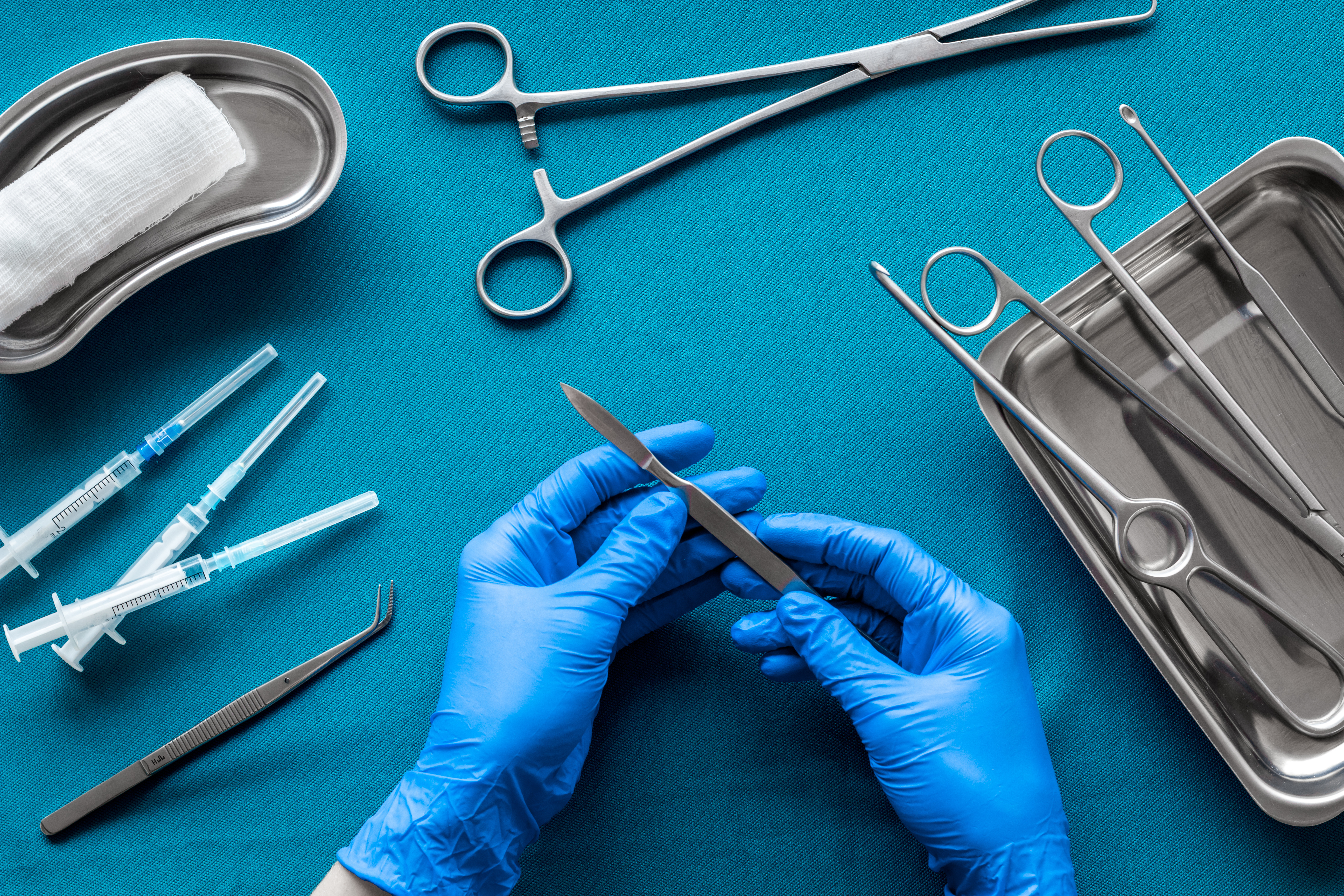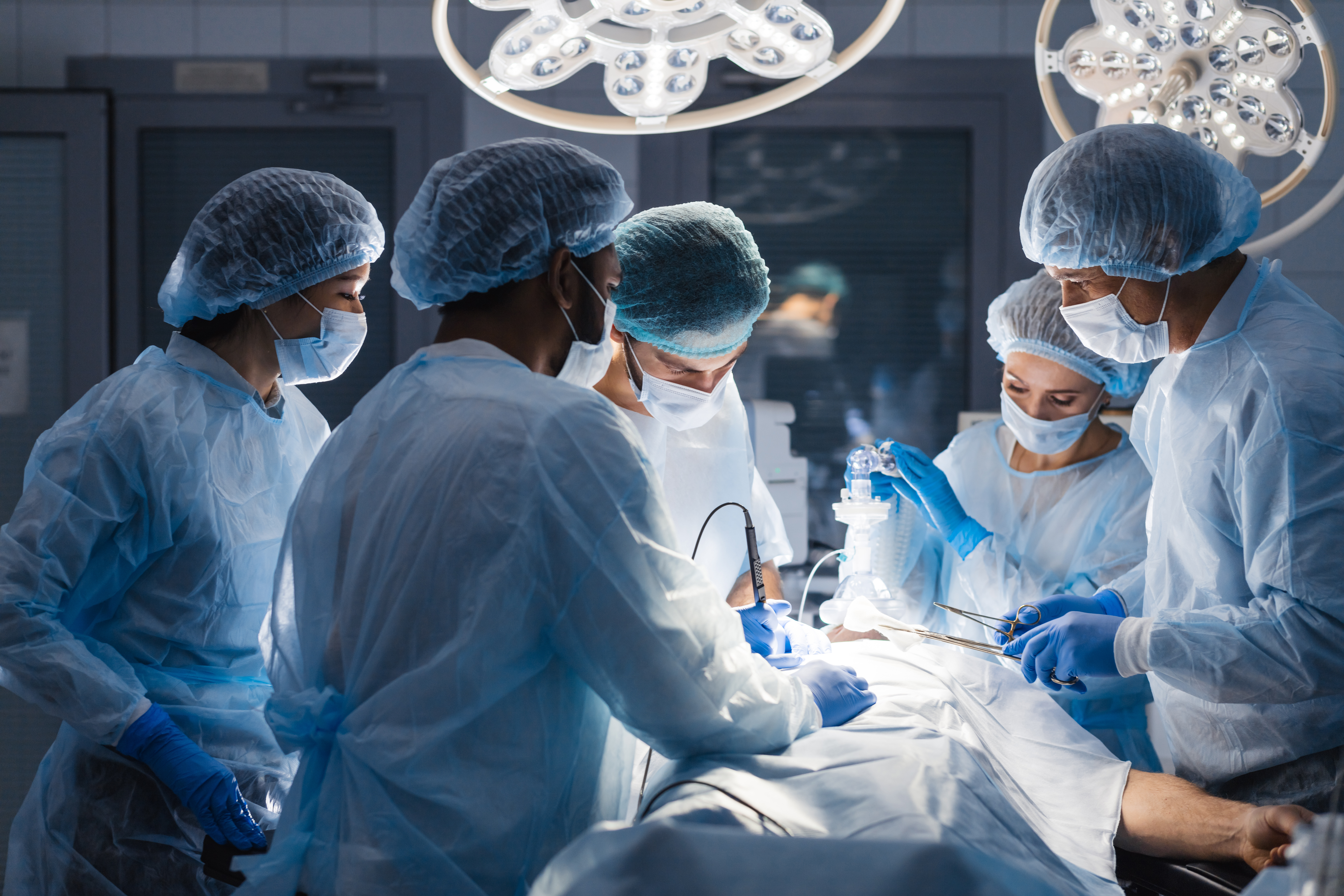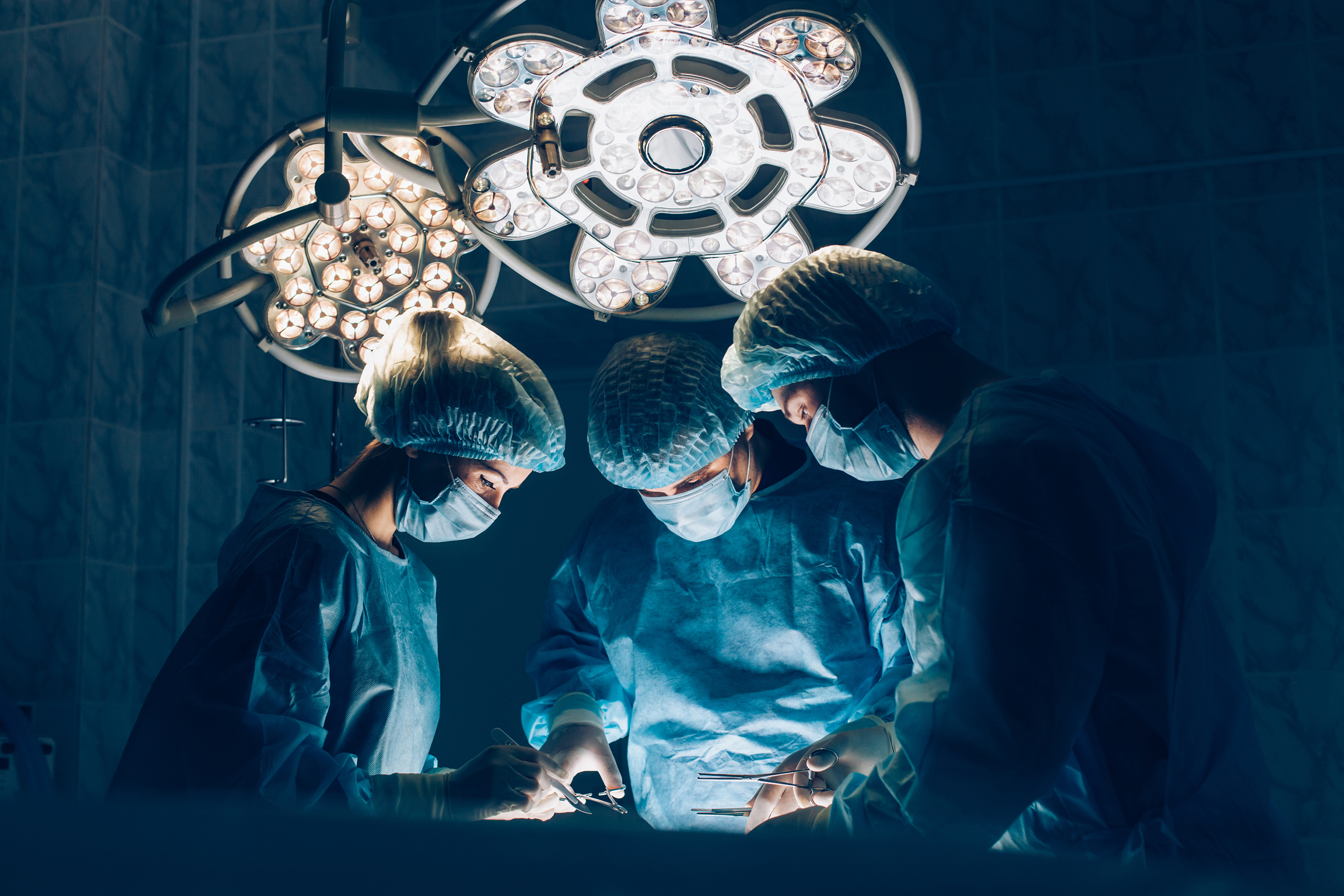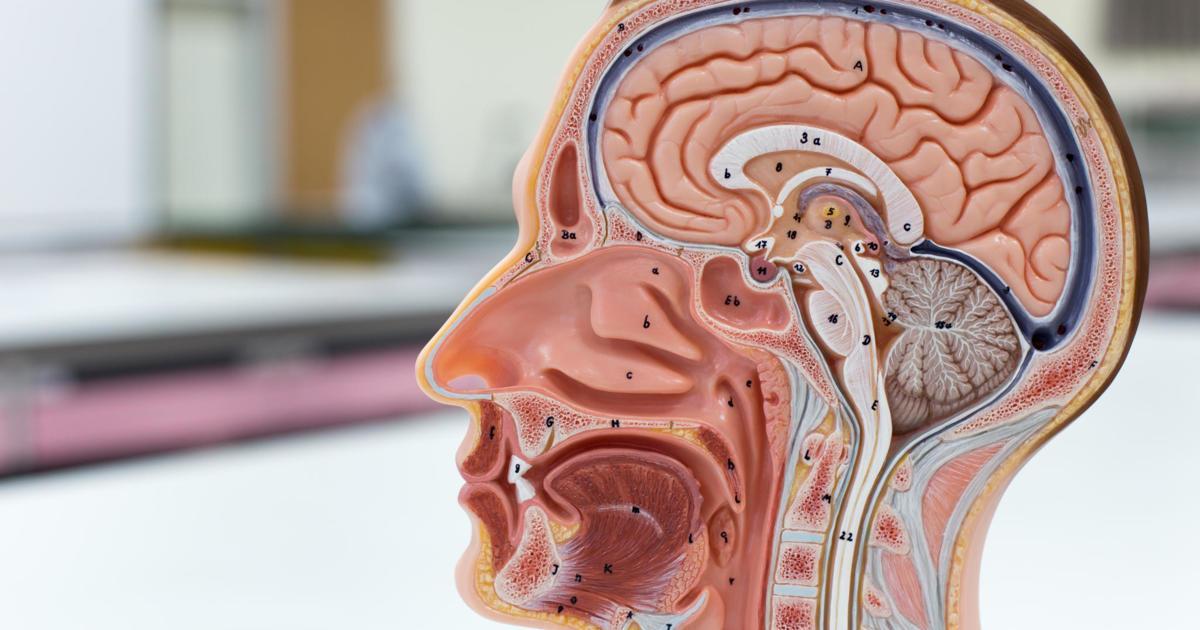

Dr. Phillip A. Villanueva, MD, FAANS
Neurosurgeon
3401 N Broad St C525 Philadelphia PA, 19140
About
Dr. Phillip A. Villanueva is a board-certified neurosurgeon who serves as Temple University Hospital’s Director of Neurotrauma and Critical Care. Additionally, he holds the position of Professor of Clinical Neurosurgery at Temple University Lewis Katz School of Medicine and is the Director of Neurotrauma and Critical Care at Temple Hospital. With expertise in both conservative and surgical care, Dr. Villanueva can treat a wide range of conditions that impact the brain, spinal cord, spinal column, and peripheral nerves. The Main Campus of Temple University Hospital is a well-known academic medical facility that provides top-notch care, cutting-edge equipment, and qualified staff on a secure, accessible campus. TUH is a teaching hospital that serves as the primary clinical training center for Temple University Lewis Katz School of Medicine.
Dr. Phillip A. Villanueva, MD, FAANS's Videos
Education and Training
University of Miami Medical Degree 1976
Board Certification
American Board of Neurological Surgery Certification in Neurological Surgery
FAANS – Fellow of the American Association of Neurological Surgeons
Provider Details

Dr. Phillip A. Villanueva, MD, FAANS's Expert Contributions
Medical Mysteries | Hemifacial Spasms | Phillip A. Villanueva, MD, FAANS
Hemifacial Spasm: Causes, Symptoms, and Treatment OptionsHemifacial spasm (HFS) is a rare neurological condition characterized by involuntary, irregular muscle contractions on one side of the face. These facial twitches often begin subtly but can progressively worsen, affecting daily life and...
Medical Mysteries | Arteriovenous Malformation | Phillip A. Villanueva, MD, FAANS
Understanding Arteriovenous Malformation (AVM)An arteriovenous malformation, or AVM, is a rare but potentially serious condition involving abnormal connections between arteries and veins. These tangled vessels disrupt normal blood flow, preventing tissues from getting the oxygen they need. AVMs can...
Wellness Workshop | What Is Hydrocephalus? | Phillip A. Villanueva, MD, FAANS
Understanding Hydrocephalus: Causes, Symptoms, and TreatmentHydrocephalus is a serious neurological condition defined by the excessive buildup of cerebrospinal fluid (CSF) in the brain’s ventricles. This fluid accumulation can enlarge the ventricles and increase pressure on surrounding brain...
Health in Focus Series | Understanding Chiari Malformations | Phillip A. Villanueva, MD, FAANS
Understanding Chiari MalformationsChiari malformations are structural abnormalities in the brain that primarily affect the cerebellum and brainstem. The cerebellum, located at the base of the skull, plays a crucial role in motor control, coordination, and balance. When part of the cerebellum extends...
Diagnosis Demystified | Managing Trigeminal Neuralgia Pain | Phillip A. Villanueva, MD, FAANS
Trigeminal neuralgia (TN) is a persistent pain disorder that causes sudden, severe facial discomfort. Often likened to sharp, electric shock-like jolts, TN attacks can be triggered by everyday activities such as talking, eating, or even a gentle breeze brushing against the skin.This condition arises...
Health in Focus Series | Increased Intracranial Pressure | Phillip A. Villanueva, MD, FAANS
Diagnosing and Treating Fatty LiverFatty liver disease occurs when fat constitutes more than 5-10% of the liver's weight. In its early stages, fatty liver is often asymptomatic, meaning many people might not realize they have it. However, as the disease progresses, it can lead to liver inflammation...
Patient Education Series | Neurosurgical Treatments For Epilepsy | Phillip A. Villanueva, MD, FAANS
Unlocking Freedom: Navigating Neurosurgical Treatments for EpilepsyEpilepsy disrupts lives, but there's hope within neurosurgical treatments. These interventions aim to reduce, halt, or eliminate seizures, providing a lifeline to those grappling with drug-resistant epilepsy. Join us on a journey of...
Spotlight Video | 4 Signs of A Stroke | Phillip A. Villanueva, MD, FAANS
4 Signs of a Stroke: Recognizing the Urgency for Timely TreatmentA stroke is a medical emergency that demands immediate attention and intervention. In the United States, someone experiences a stroke every 40 seconds. Understanding the signs of a stroke is crucial in ensuring prompt medical care and...
Spotlight Video | Minimally Invasive Spine Fusion | Phillip A. Villanueva, MD, FAANS
Phillip A. Villanueva, MD, FAANS is an Established Neurosurgeon at Temple Neurosurgery - Temple University Hospital in Philadelphia, Pennsylvania.Dr. Phillip A. Villanueva is a board-certified neurosurgeon who treats patients at Temple Neurosurgery - Temple University Hospital located in...
Can hand nerve damage be fixed without surgery?
If there is compression or impulse blocking by scar tissue then surgery is usually recommended. If it’s a closed injury like a crush or bruises splinting followed by therapy. READ MORE
Can I drive a car?
Depends on the size of the bone defect. If over 5 square centimeters you should wear a protective helmet. READ MORE
How can I prevent a stroke?
Visit your primary MD and discuss a baseline stroke risk workup. Serum lipids, cholesterol, EKG, and possible echo cardiogram If there is a bleed history then an MRI of the brain Blood clotting factors. READ MORE
What can I do for nerve pain after a stroke?
Gabapentin up to 3 grams daily may help READ MORE
Can a neurologist help with a speech delay?
Yes especially a pediatric neurologist READ MORE
Expert Publications
Data provided by the National Library of Medicine- Neurobehavioural outcomes of penetrating and tangential gunshot wounds to the head.
- Hyperbaric oxygen seizures in rats: effects of handling and chamber noise.
- Magnetic resonance applications in cerebral injury.
- Simplified technique for subdural pressure monitoring: technical note.
- An improved subarachnoid screw for intracranial pressure monitoring. Technical note.
- Evaluation of serum osteoblast mitogenic activity in spinal cord and head injury patients with acute heterotopic ossification.
- Orbital-frontal delayed hemorrhagic contusions: clinical course and neurosurgical treatment protocol.
- Diffuse axonal injury (DAI) is not associated with elevated intracranial pressure (ICP).
- Early combined management of frontal sinus and orbital and facial fractures.
Areas of expertise and specialization
Faculty Titles & Positions
- Professor, Clinical Neurosurgery Lewis Katz School of Medicine at Temple University -
- Director, Neurotrauma and Critical Care Temple University Hospital -
- Practicing Neurosurgeon Temple University Hospital -
Awards
- Top Doctor 2020 Best Doctors in America®, Neurological Surgery
- Dean’s List for Patient Satisfaction Year
- Neurosurgical Resident of the Year Award Year Jackson Memorial Medical Center
- Scholarship Year Frank McCleary Medical
- Iron Arrow Honor Society Year
- Alpha Omega Alpha Honor Medical Society Year
Professional Memberships
- American Association of Neurological Surgeons
- Congress of Neuroscience
- Society Section on Trauma & Critical Care - AANS/CNS
- Society of Neuroanesthesia and Supportive Care
- Georgia Neurosurgical Society
- American Brain Injury Consortium
- National Head Injury Foundation
- Society of Critical Care Medicine
- Iron Arrow Honor Society
- Alpha Omega Alpha
- Fellow of the American Association of Neurological Surgeons (FAANS)
- Pennsylvania Neurosurgical Society
Fellowships
- University of Miami/Jackson Memorial Medical Center Neurosurgical Care
Charities and Philanthropic Endeavors
- Raises public awareness of brain trauma through community PSAs
- Contributions to key educational texts in critical-care neurosurgery
Dr. Phillip A. Villanueva, MD, FAANS's Practice location
Miami, FL 33136Get Direction
Dr. Phillip A. Villanueva, MD, FAANS's reviews
Write ReviewPatient Experience with Dr. Villanueva
Media Releases
Transforming Lives Through Surgical Excellence and Compassionate Care
Philip A. Villanueva, MD, FAANS, a distinguished neurosurgeon with nearly five decades of experience, currently serves as the Director of Neurotrauma and Critical Care at Temple University Hospital in Philadelphia. A prominent figure in Pennsylvania’s leading neurosurgical center, Dr. Villanueva combines surgical mastery with academic leadership to provide comprehensive care for patients with complex neurological conditions.
Dr. Villanueva is also a Professor of Clinical Neurosurgery at the Lewis Katz School of Medicine at Temple University, where he plays a pivotal role in shaping the next generation of healthcare professionals. His commitment to education is matched by his dedication to patient care; Dr. Villanueva’s expertise spans conservative and surgical treatment approaches for conditions affecting the brain, spinal cord, spinal column, and peripheral nerves.
Under Dr. Villanueva’s leadership, the Neurotrauma and Critical Care Program has experienced significant advancements, expanding its services to better serve patients suffering from traumatic brain injuries, aneurysms, spinal cord injuries, and complex neurological emergencies. His dual role as a surgeon and educator allows him to integrate the latest surgical techniques with best practices in intensive care, ensuring both immediate survival and improved long-term neurological outcomes for patients.
Dr. Villanueva earned his Medical Degree from the University of Miami Miller School of Medicine, where he cultivated his passion for neurosurgery. He completed his residency in neurological surgery and further enhanced his skills through a fellowship at the University of Miami/Jackson Memorial Hospital. This rigorous training has equipped him with the knowledge and experience necessary to excel in his current role.
As a Fellow of the American Association of Neurological Surgeons (FAANS), Dr. Villanueva is board-certified in neurological surgery by the American Board of Neurological Surgery, exemplifying his commitment to maintaining the highest standards of medical practice. He actively engages in various professional organizations, including the Congress of Neuroscience, the Society Section on Trauma & Critical Care – AANS/CNS, and the Pennsylvania Neurosurgical Society, among others. His involvement in these organizations underscores his dedication to staying at the forefront of advances in neurosurgery and critical care.
At the core of Dr. Villanueva’s career is a deep commitment to his patients. His surgical success is not solely attributed to his technical skills but also his genuine compassion for those under his care. Dr. Villanueva employs a holistic approach that considers the emotional and psychological needs of his patients during their treatment journeys.
Patients frequently express feeling reassured and supported while under Dr. Villanueva’s care. His ability to simplify complex neurological conditions fosters a trusting relationship, allowing patients to feel more engaged in their treatment plans. This patient-centered approach has been instrumental in his success as a neurosurgeon.
Dr. Villanueva’s dedication and contributions to the field of neurosurgery have garnered numerous accolades, including recognition as one of the Best Doctors in America® for Neurological Surgery for 2019-2020. His honors also include the Dean’s List for Patient Satisfaction, the esteemed Iron Arrow Honor Society, the Alpha Omega Alpha Honor Medical Society, and the Neurosurgical Resident of the Year Award from Jackson Memorial Medical Center, among others. These achievements reflect his unwavering commitment to excellence and his profound impact on both his patients and the medical community.
In addition to his clinical work, Dr. Villanueva is passionate about raising public awareness regarding brain trauma. He has participated in community public service announcements (PSAs) and continues to contribute to the academic community through key educational texts in critical-care neurosurgery.
“Philadelphia has entrusted its most vulnerable patients to our Neurotrauma unit,” Dr. Villanueva stated. “My focus remains on advancing multimodal approaches to neurocritical care—fusing surgical innovation, compassionate patient engagement, and rigorous academic standards to improve recovery and reduce long-term disability.”
As Dr. Phillip A. Villanueva continues to excel in his roles as a surgeon, educator, and leader, the future of neuroscience at Temple University Hospital looks promising. His unparalleled career reflects a lifetime of service and an unwavering dedication to advancing the field of neurosurgery, ensuring that the highest standards of care are met for countless patients.
Recommended Articles
- Treatment for Parkinson's Disease
Parkinson’s Disease: It Isn't EasyTony led a normal life just like many of us. He was approaching his fifth to sixth decade, and he was the head of an engineering department--capable of making decisions and recalling those decisions. But suddenly, communication with his wife and children was...
- What is a Transient Ischemic Attack?
Also considered as a mini stroke, a transient ischemic attack (TIA) has symptoms similar to that of a stroke, but lasting only for a short period of time, without causing any permanent damage. TIA is often caused by the interruption of blood flow to the brain by a blood clot. Once the blood flow is...
- What Is a Prefrontal Lobotomy?
Lobotomy is a neurosurgical procedure invented in 1935 by a Portuguese neurologist named Moniz. Moniz won the Nobel Prize in 1949 for his achievement. It was believed that lobotomy was successful in the treatment of various psychological diseases like depression, bipolar disorders, mania,...
- What Is a Transorbital Lobotomy?
Transorbital LobotomyTransorbital lobotomy was once considered as a form of neurosurgery that was labeled as "insane". A pioneer in this field was a Portuguese doctor named António Egas Moniz. He introduced frontal lobotomy in 1935 for certain cases of psychosis and won a Nobel Prize because of...
- Scoliosis Pain: Treatment, Management, and Exercises
Scoliosis is a serious condition that often occurs more in females than in males. The condition itself can be hard to diagnose at the start, which is why the healthcare professional will subject the patient to several tests, including asking them to touch their toes as well as to find out if their...
- Recovery After a Laminectomy
Laminectomy is a surgical procedure done for the removal of the lamina, bone spurs, and ligaments that may be putting pressure on your spinal nerves and causing lower back pain. The procedure is said to be one of the most commonly performed back surgeries. Below is a detailed information on what...
Nearest Hospitals
KENSINGTON HOSPITALl
136 W DIAMOND STREET PHILADELPHIA PA 19122ST CHRISTOPHER'S HOSPITAL FOR CHILDRENl
120 EAST ERIE AVE PHILADELPHIA PA 19133SHRINERS HOSPITALS FOR CHILDREN - PHILADELPHIAl
3551 N BROAD STREET PHILADELPHIA PA 19104UNIVERSITY OF MIAMI HOSPITALl
1400 NW 12TH AVE MIAMI FL 33136JACKSON MEMORIAL HOSPITALl
1611 NW 12TH AVE MIAMI FL 33136ANNE BATES LEACH EYE HOSPITALl
900 NW 17TH ST MIAMI FL 33136
















